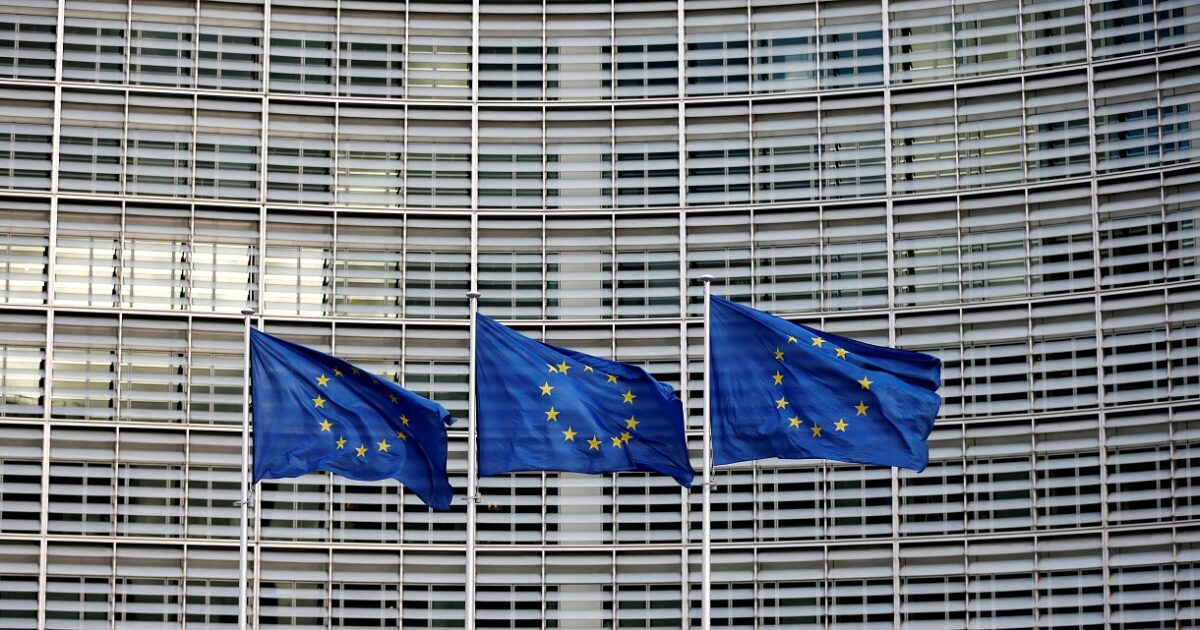To maintain its strong dynamics or Greek economy in 2025 and 2026, according to its spring forecasts Commission.
Specifically, the Greek economy is expected to magnify by 2.3% in 2025 and 2.2% in 2026, thanks to sustainable consumption and increased investment funded by the EU (Recovery Fund), according to the Commission.
Inflation is expected to be mitigated at 2.3% by 2026, with strong wage developments and demand still pressure on consumer prices. Greece has achieved a significant fiscal surplus in 2024, which is expected to be maintained throughout the forecast.
Helped by the strong increase in nominal GDP, the debt to GDP continues to decline and is expected to reach 140.6% in 2026.
The economy maintains its impulse despite adversity
In 2024, Greece’s economy was developed by 2.3%. This was largely fueled by private consumption, investment and stock accumulation. Despite the fiscal policy policy, the increase in domestic demand was strong and there was a significant increase in imports, while exports increased at a slower pace. As a result, net exports have negatively affected economic activity.
With the progress of the recovery and resilience plan, EU -funded investments are expected to be significant in 2025 and 2026. Along with the constant powerful consumption, supported by a steady increase in income, they are expected to be the main leverage of economic growth. Demand for imports is expected to remain strong, given the high introductory content of investment.
Overall, GDP growth is expected to continue to exceed its long -term potential, at a rate of 2.3% in 2025 and 2.2% in 2026. The Greek economy is expected to only be slightly affected by US duties due to its relatively weak and indirect trade ties with the United States. However, the risks to growth prospects have increased and tend down, as persistent increase in trade and geopolitical uncertainty, coupled with the deterioration of global economic perspectives, could negatively affect Greek exports, in particular tourism.
Closer labor market and sustainable wage increase
The labor market has improved in recent years and favorable potential continued in early 2025, as evidenced by the further reduction in unemployment rate in February to 8.6%. At the height of the first quarter of 2024, vacancies have begun to decline, but continue to indicate a close labor market, especially in tourism -related areas and those that require high skills.
Employment is expected to continue to grow, though at a slower pace, as the skill gap and low labor market participation, especially among women, limit the job supply. In this context, real salaries per employee are expected to increase further, on average by 1.3% per year during the provisions of forecasts. This is also supported by recent increases in the minimum wage and the reduction of social security contributions.
Inflation will remain above the average of the eurozone
The average general inflation was 3% in 2024, ie 0.6 percentage points. over the average of the euro area. Inflation decline has been limited by accelerating services and rising power prices. As for the future, salaries are expected to continue to raise prices.
As a result, the inflation of services is expected to slowly slow down on the timing of forecasts. Overall, inflation is projected to be 2.8% in 2025 and at 2.3% in 2026. Inflation excluding energy and food prices is projected to remain higher at 3.5% and 2.6% in 2025 and 2026, respectively.
Stronger fiscal prospects due to structural profits
In 2024, the General Government’s balance exceeded expectations and recorded a surplus of 1.3% of GDP, compared to the projected 0.6% of GDP deficits in autumn forecasts. This improvement is due to the sluggish increase in current expenditure, the strongest of the expected income from direct taxes, and the strong receipts from social security contributions, which are linked not only to the strong increase in employment but also to measures to combat tax evasion and labor and labor cards.
In 2025, the general government’s surplus is expected to decline, reaching 0.7% of GDP. On the revenue side, the forecast reflects the highest basic scenario due to the more powerful revenue of revenue in 2024 and takes into account the increase in overnight taxes in hotels, structural measures to combat tax evasion, expanding digital work cards and labor cards and workplace Increasing the fees of local government.
These measures are expected to offset the impact of a planned reduction by 1 percentage unit of the Social Security contributions and the increase in wages in the public sector. On the expenditure side, forecasts incorporate a new beam of 0.5% of GDP measures, announced after the publication of the 2024 budgetary outcome, including the return of a monthly rent with income criteria, a permanent social benefit of 250 euros, and a 250 -euro social benefit, An annual increase of 500 million euros in the national investment budget.
In 2026, the general government surplus is projected to increase to 1.4% of GDP with the unchanged policy case. This improvement is expected to be supported by the continuing increase in tax revenue and social security contributions, which are expected to offset the increasing spending on pensions and wages of the public sector. The fiscal policy is projected to be expanding, supported by EU funding, both in 2025 and 2026.
The public debt index to GDP is projected to continue to decline to 146.6% in 2025 and to 140.6% in 2026. The decline is expected to be due to the increase in nominal GDP as well as the budget surpluses.
